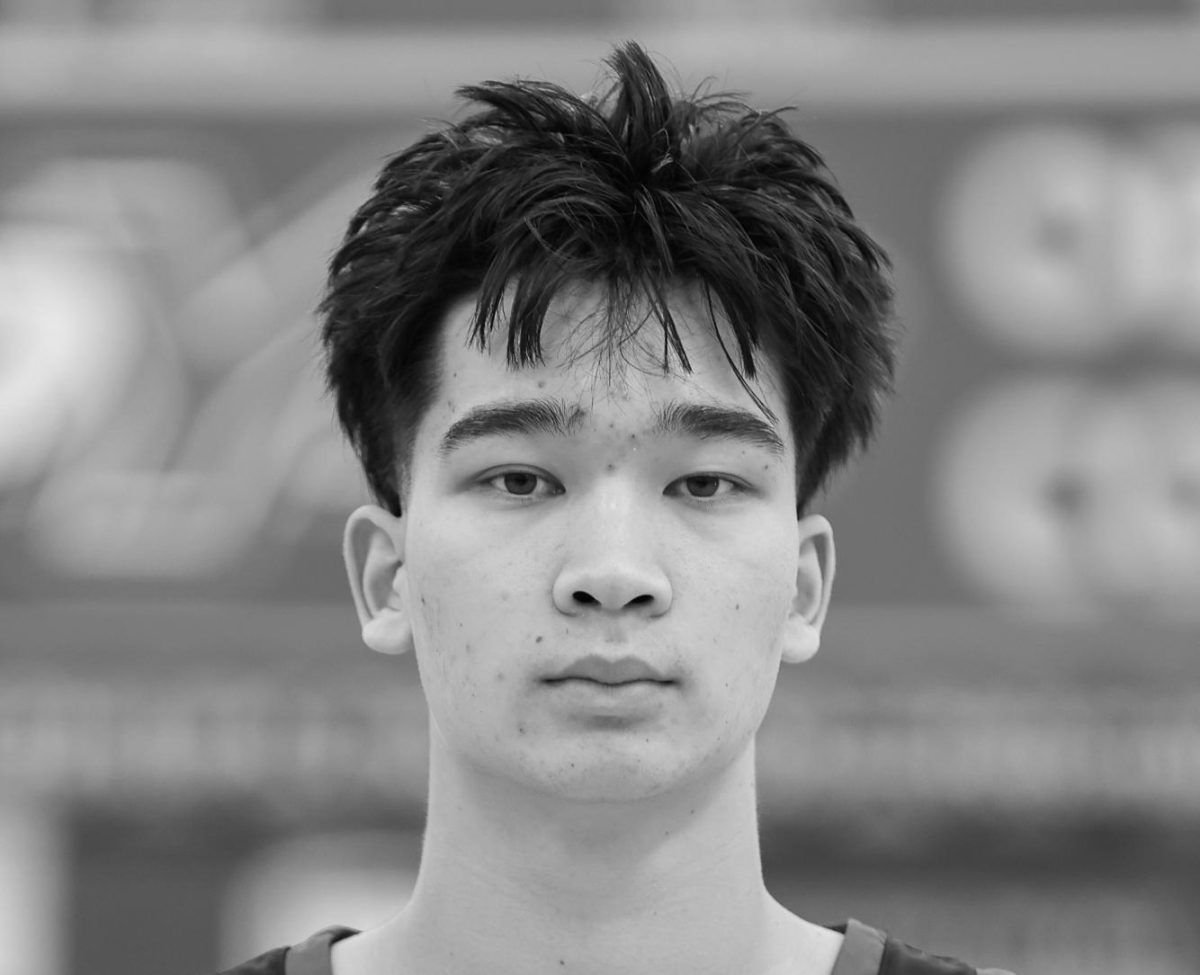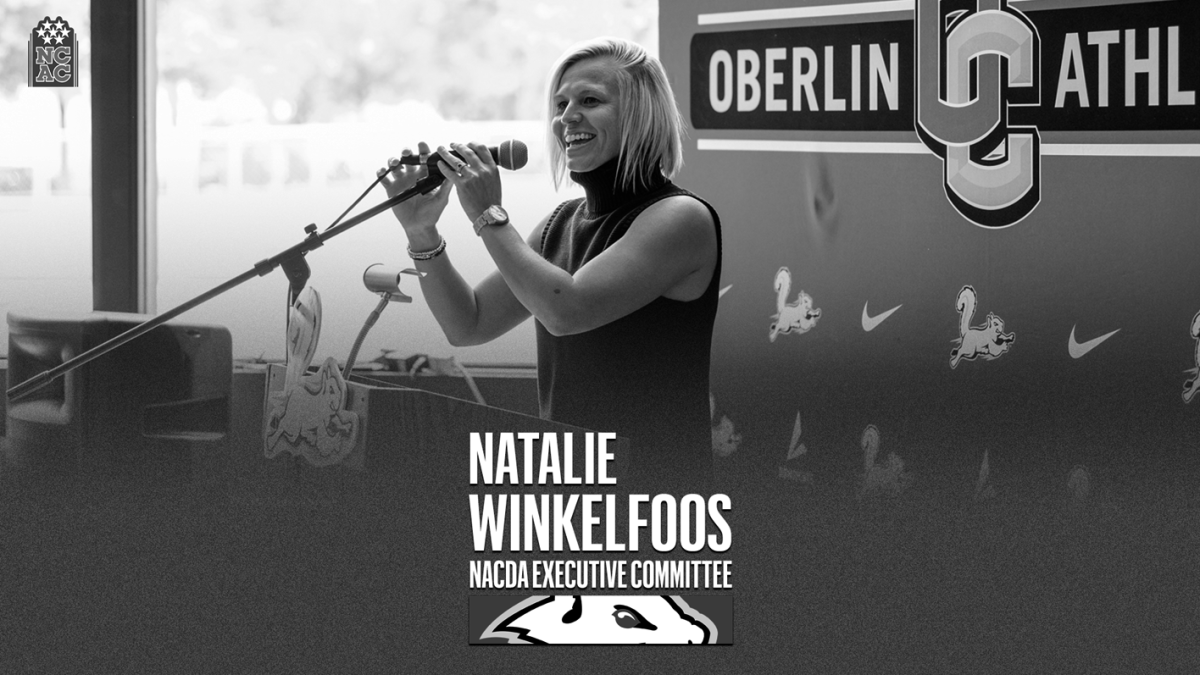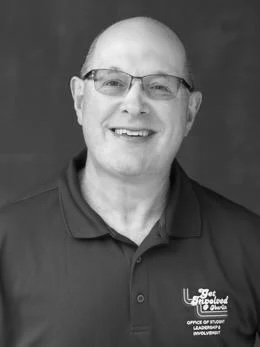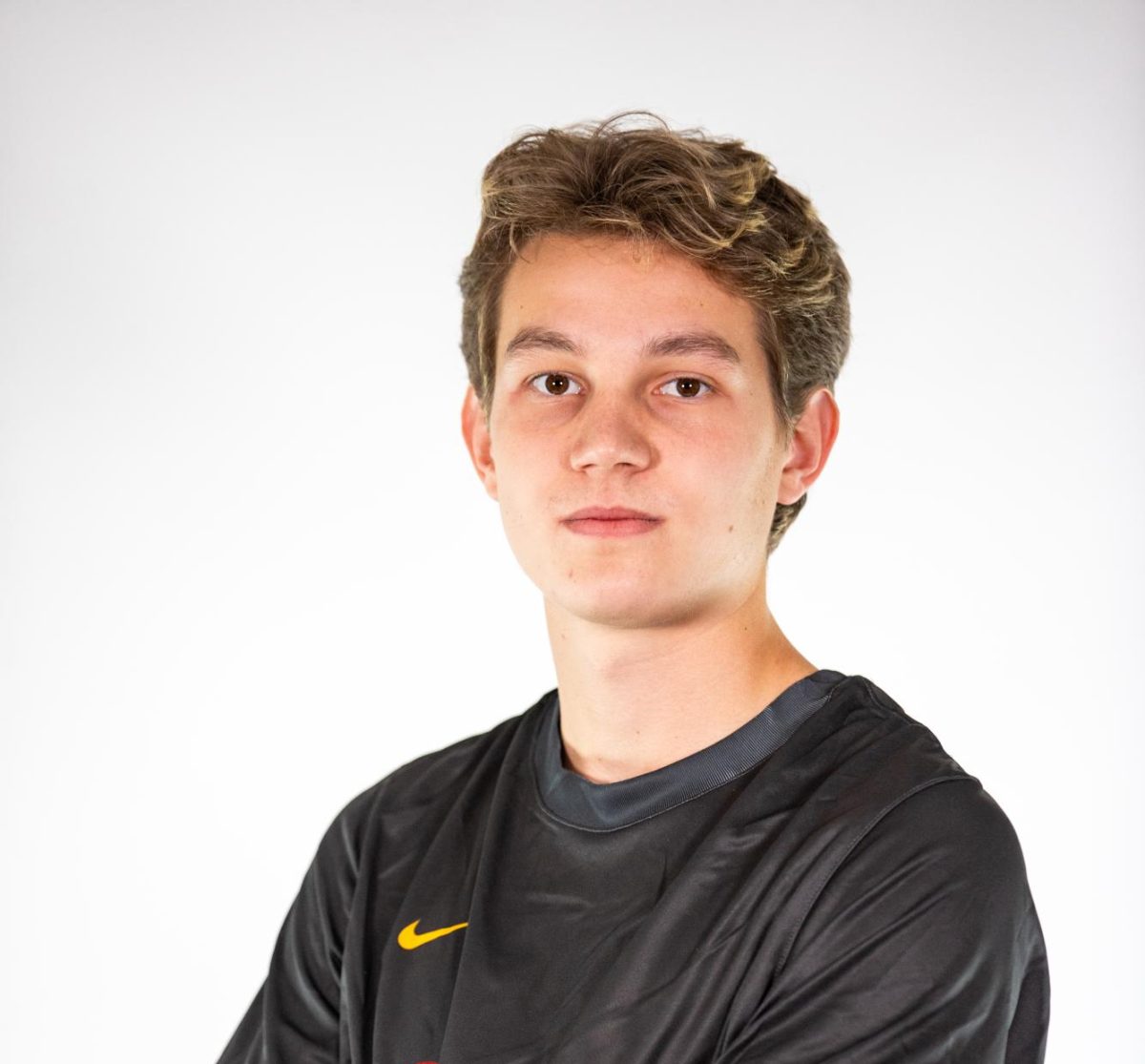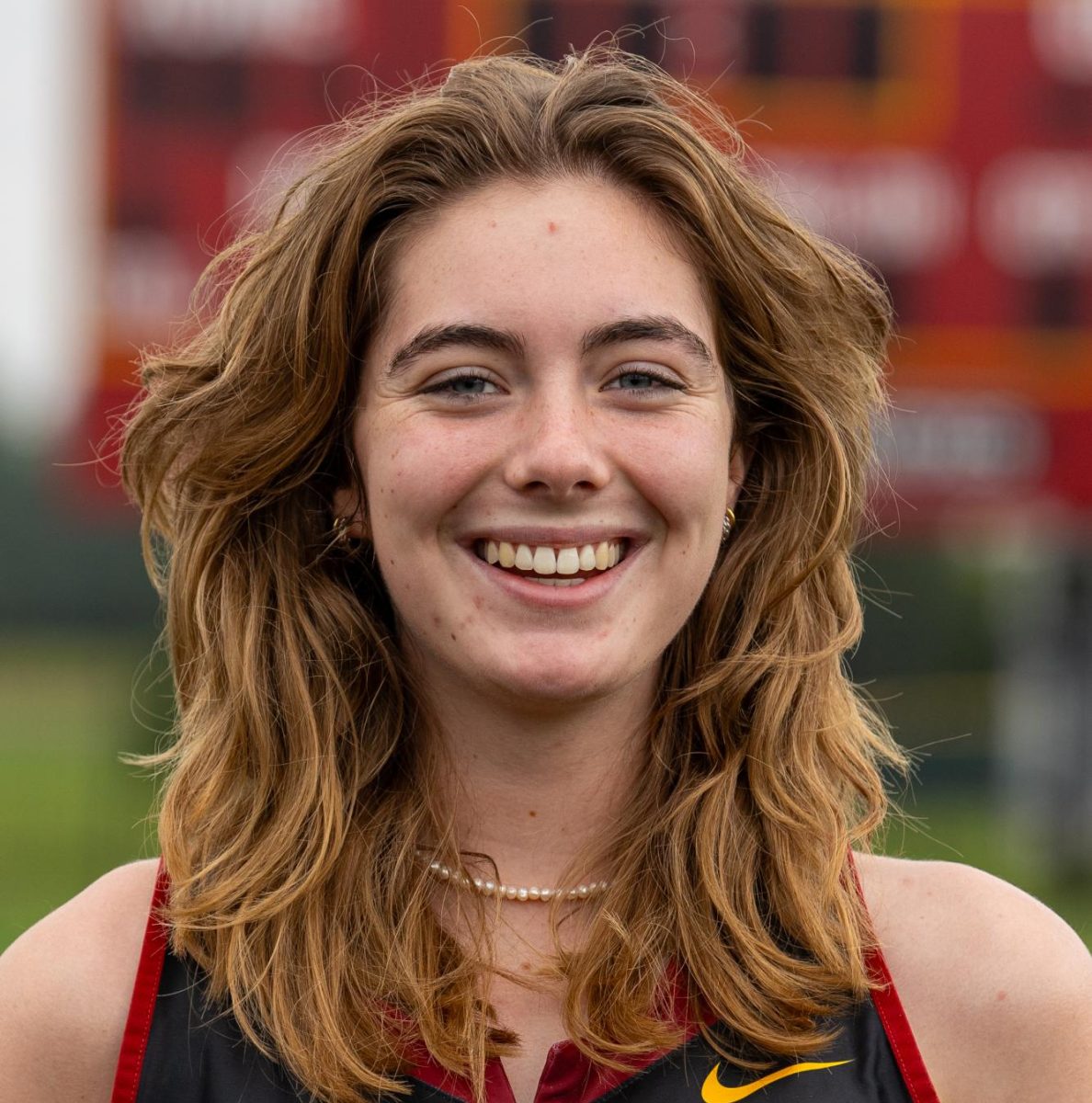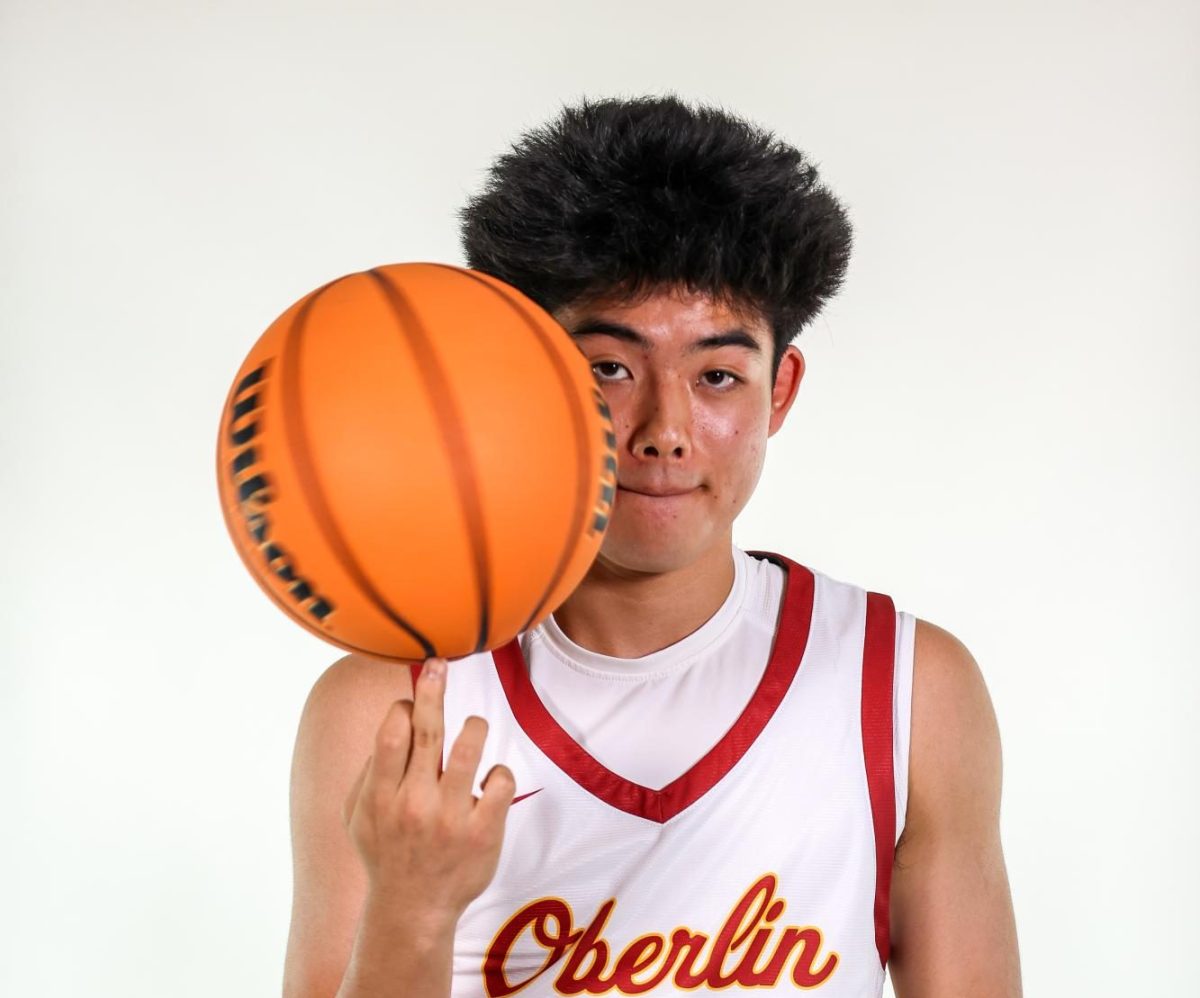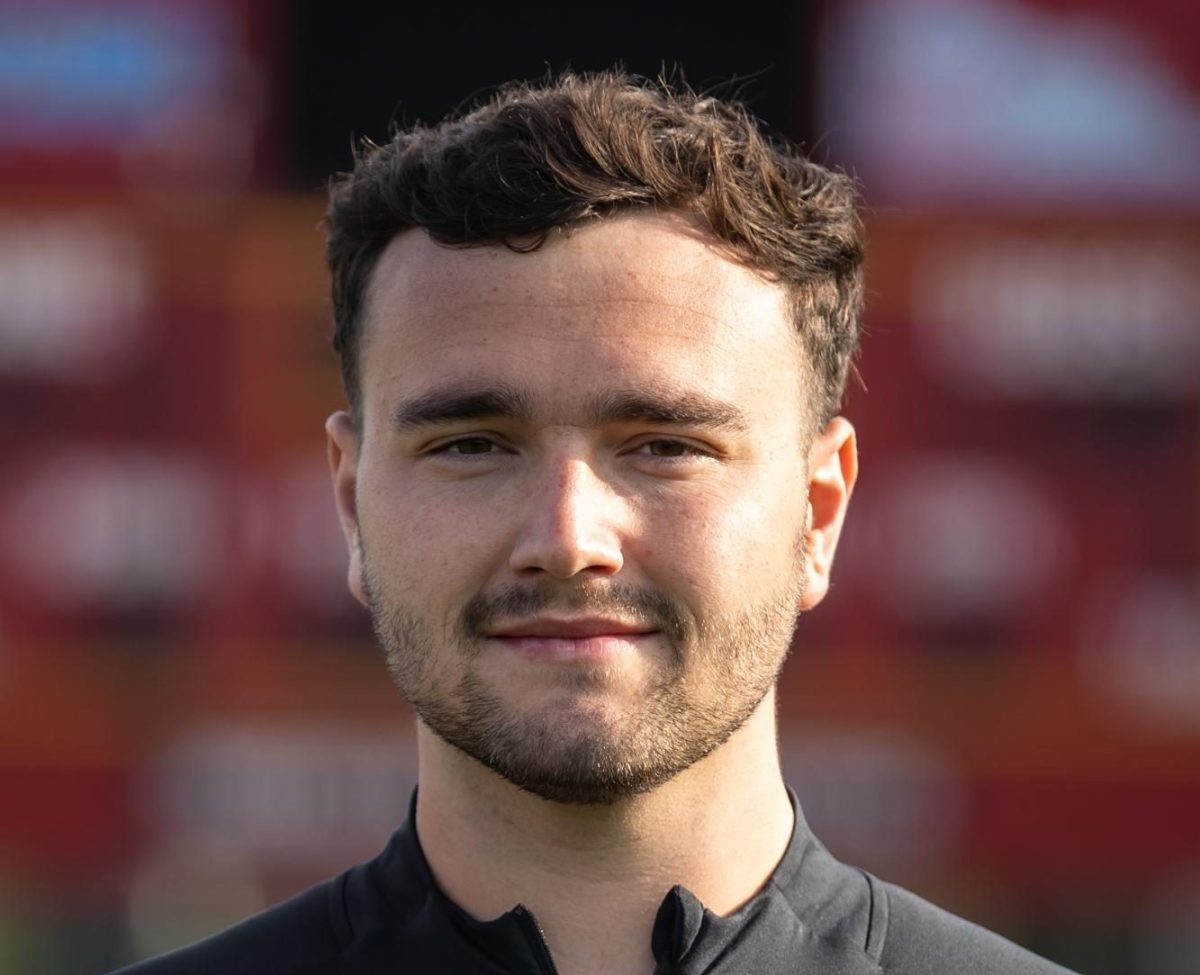JJ Gray is a second-year Economics major on the men’s basketball team and the co-chair and founder of the Asian Student-Athlete Group. Last week, Gray was awarded North Coast Athletic Conference second-team honors for his athletic performance this season on the basketball court.
This interview has been edited for length and clarity.
What led you to pursue founding the Asian Student-Athlete Group last year?
I’m from Southern California. My high school was 70 percent Asian, and we had 5,000 kids, so a bigger school than Oberlin. So then I come here to the Midwest, and it’s a culture shock, where I didn’t see any Asians the first week on campus, besides [fourth-year basketball player] Yuuki [Okubo]. Then I was meeting a couple Asian athletes here and there, and they all had unique stories. I thought, “All these people are great people. I’d be selfish to hold all these friendships just to myself.” I noticed most of them weren’t friends with each other, and I was like, “Why don’t I start something?”
I saw the Black Student-Athlete Group and the Queer Student-Athlete Group, and I was like, “Where’s an Asian Student-Athlete Group?” So, within the first week of classes I decided, “I’m starting this.” I just have to get people to join now. I took Econ 101, a class with [second-year] Peyton Lee on men’s lacrosse, and I was like, “Look, dude, we’re both from Cali, like, we’re both Asian athletes. Let’s start this thing.” The whole first year after ASAG was founded, we were fighting to get funding and to get our club out there, and it wasn’t until spring when we got everything started. We started with a couple watch parties for NCAA March Madness. And then we went full speed ahead this year because we finally got our funding. We had our welcome event, and then we recently had our guest speaker event this past Sunday with Kinori Sugihara Rosnow, OC ’17, that went really well. We’re planning a pickleball tournament for April, which we’re gonna make into a fundraiser for Oberlin Community Services, and then we’re planning an Asian and Pacific Islander Month staff and faculty panel for May.
How does it feel to finally have that community within athletics at Oberlin, mostly thanks to the work that you have done?
It’s just a surreal feeling. I was walking down Wilder Bowl the other day and I saw two club members who are first years, who are on two different teams, talking to each other and I know it’s because they met at a meeting. I was just smiling. This is what it’s all about. It doesn’t hurt to have an extra friend on campus, you know?
Where do you see ASAG going in the coming years?
The main goal is for it to continue after I graduate. Leaving that legacy would be an amazing feeling. At the guest speaker event, I asked Rosnow, “What piece of advice do you have for current seniors?” And he said, “You know, your legacy isn’t dependent on you. It’s the people that come after you who carry it.” So when Okubo graduates, I’ll be playing for his legacy; I’ll be playing with the skills and talent that he’s helped me foster. With this club, I don’t care about being recognized as a founder or the person who started it, I just want it to be continued, and to start developing an alumni network.
Tell me about your time playing for Team USA’s Division III squad.
After my freshman season, I got an email and it said, “D3 Team USA, sign up here.” I went up to [Head Men’s Basketball] Coach Shiva [Senthil] and I said, “Coach, this has to be a scam, right? There’s no D3 Team USA.” He said, “No, this is big news. You gotta do it.” Then I found out that they take the 10 most suitable D3 athletes at the time and form a team and do a Brazil tour. So I went to Brazil in the summer for two weeks. We played Brazil’s Under-22, Under-20 team, and we played two professional teams with former NBA players. We went 3–1, and it was just all the Division III all-stars. I was one of two first-years on the team, and all the rest of them were upperclassmen. So I just learned so much from that, and I realized that everyone in D3 are the same people. Everybody deals with the same stuff at their small D3 school, and all the guys were so cool. I still talk to all of them now, and we were only together for two weeks. It was just such a good experience. It was my first time out of the United States. So it was just a phenomenal experience that I wish everybody could do.
What does that mean to you, to be recognized for all the hard work you’ve put in?
To be honest, I have a hard time congratulating myself. Rosnow said in lacrosse, not gripping the stick too tight, accepting the small goals and allowing yourself to feel happy while still being hungry is important. So that’s something I’m working on a lot. The goal next year is to be Player of the Year, and I wanted first team this year, but I’m allowing myself to accept this and use it as motivation to get a higher award next year. Honestly, I think individual goals come with team success. I want to win, so being a good leader, my preparation off the court, on the court — everything has to be to a T. So I think winning as a team is the goal next year.
Next year you will be an upperclassman. What is your role as an emerging leader on the team?
We don’t have captains on the team, but fourth-year Andrew Gannon was like our vocal captain, the one getting us hyped. And then Okubo was our quiet captain, the one who would lead by example. We’re losing both of those guys, so I feel I have to step up big time and the rising seniors need to step up big time too because we’re losing those two vital leaders on our team. I’m excited for next year, but that’s gonna be a really hard test for me because I’m a quiet guy in a big setting. I don’t feel comfortable talking in front of a team or anything, so I’m really excited to learn the skills for next year that I could carry into my future life.


